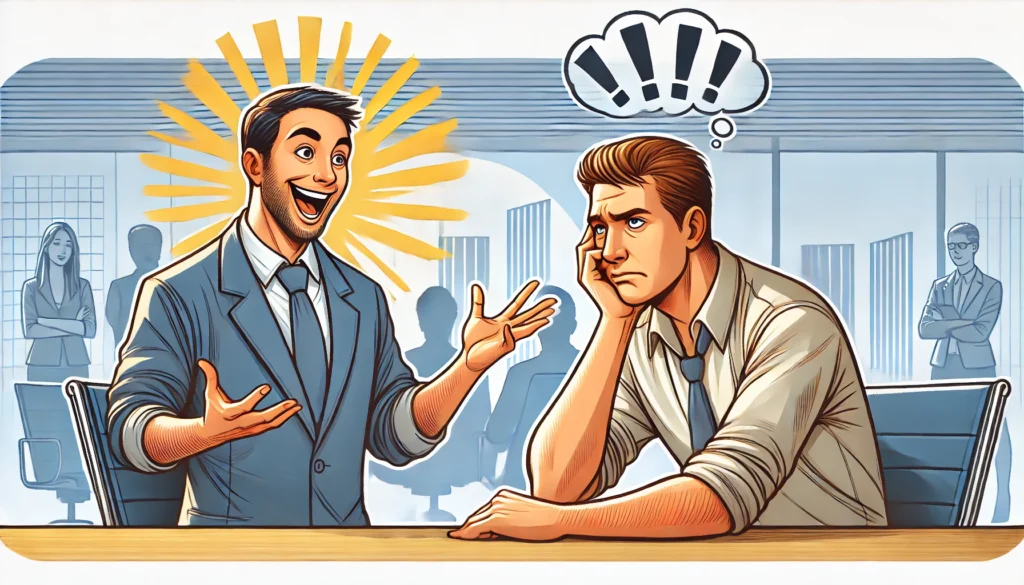I am quite excited as I join the webinar. It has been pitched to me as something that will provide a clear framework for overcoming a challenge I currently face.
The presenter begins with a great deal of energy. He engages the audience and sets the scene for what to expect. He claims the webinar will reveal a clear roadmap for everyone to follow to achieve exactly what I, along with everyone else in the audience, am here to learn.
He then proceeds to highlight case studies of previous clients who followed the framework and achieved phenomenal success. I think to myself – ok, that’s good to know. But everyone here already recognises that you have something useful to share.
Time keeps passing, and the presenter, very enthusiastically, spends the next 45 minutes building the case for the grand reveal – the secret sauce, the holy grail everyone in the audience supposedly needs to achieve the same astronomical results. The case studies keep pouring in.
At this point, I’m starting to get a bit annoyed. When will the webinar actually start?
The presenter then provides a rushed 5–minute overview of something that feels somewhat useful. Stuff that was already on the presenter’s website.
And just when I think he’ll go deeper, he does what I had started to fear ever since my agitation began – he makes the case for joining a 2–day programme where the ultimate secret will be shared.
For the next 20 minutes, he sells the hell out of this course, highlighting how thousands of dollars’ worth of value is available for merely a few hundred. He even runs over by 10 minutes. Eventually, I drop off. I can’t stand the sales pitch any longer. I’ve barely learnt anything from the webinar in the past hour and ten minutes.
Now, it is possible he even got a few subscriptions. After all, he was employing every trick in the book – creating urgency, incentivising quick signups, framing the supposedly low price of the programme against a much higher anchor. All the tricks were there.
But the webinar itself was just a sales pitch. It offered nothing else. And it left a bad taste in my mouth. I thought, there is no way I’m paying for anything this company is selling.
Instead, if the webinar had delivered an hour’s worth of value, and then stated at the end how much more there was to learn in the 2–day programme, I might have considered it.
Also, it showed me little respect. Nobody sells something worth thousands of dollars for a few hundred. I would have been more receptive to the value of the programme if the false anchor hadn’t been deployed.
The lesson for us as public speakers, therefore, is to have a mindset of service. When we have our audience’s attention, we should add value by giving them what they’ve come for – whether it’s learning about a product, a service, or an idea. If they wish to engage further with your work, it should be their choice. If you’ve delivered value, there’s a good chance they might. If you’ve oversold, they may just resent you for it.
